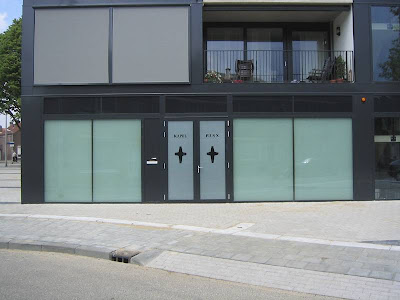Chapel of Pope St Pius X, Tilburg, Holland


But I don't think the local Bishop can have any worries that it might be occupied by the Society of St Pius X.
What Pope St Pius X wrote on church music could equally apply to church architecture.
Why was he ignored?
1. Sacred music, being a complementary part of the solemn liturgy, participates in the general scope of the liturgy, which is the glory of God and the sanctification and edification of the faithful. It contributes to the decorum and the splendor of the ecclesiastical ceremonies, and since its principal office is to clothe with suitable melody the liturgical text proposed for the understanding of the faithful, its proper aim is to add greater efficacy to the text, in order that through it the faithful may be the more easily moved to devotion and better disposed for the reception of the fruits of grace belonging to the celebration of the most holy mysteries.
2. Sacred music should consequently possess, in the highest degree, the qualities proper to the liturgy, and in particular sanctity and goodness of form, which will spontaneously produce the final quality of universality.
It must be holy, and must, therefore, exclude all profanity not only in itself, but in the manner in which it is presented by those who execute it.
It must be true art, for otherwise it will be impossible for it to exercise on the minds of those who listen to it that efficacy which the Church aims at obtaining in admitting into her liturgy the art of musical sounds.
But it must, at the same time, be universal in the sense that while every nation is permitted to admit into its ecclesiastical compositions those special forms which may be said to constitute its native music, still these forms must be subordinated in such a manner to the general characteristics of sacred music that nobody of any nation may receive an impression other than good on hearing them.









.jpeg)

Comments